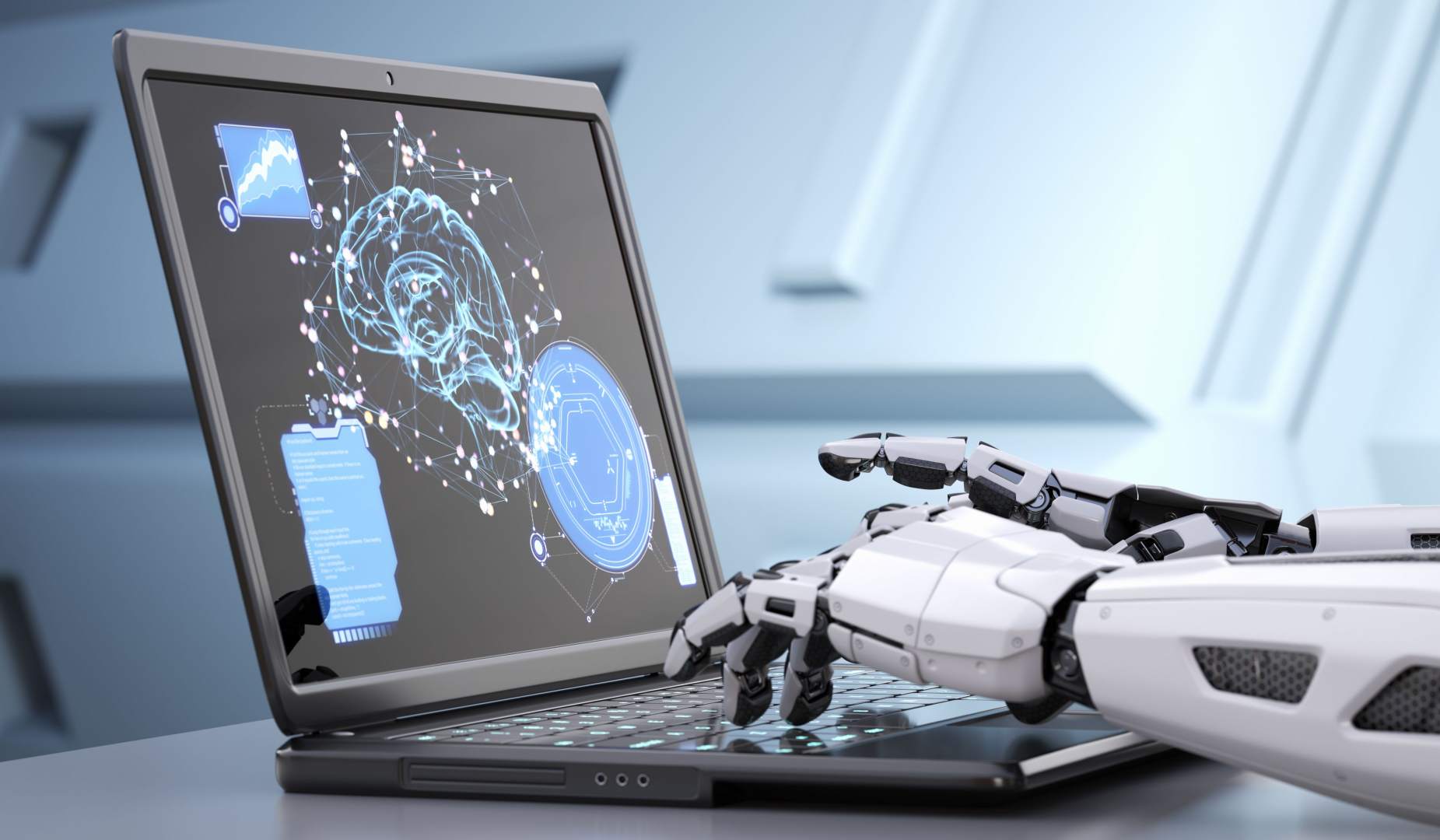The Biggest Trends in Artificial Intelligence (AI) in 2022
Feltöltés dátuma:
In 2022, we will see that artificial intelligence continues on the path to the most transformative technology ever developed by mankind. Google CEO Sundar Pichai says the impact of this on human technology development will be even greater than fire or electricity. This may seem like a very ambitious statement, but given that it is already being used in the fight against climate change, in space research, and the development of cancer treatment methods, the opportunity is there.
At the moment, it’s very difficult to imagine the full range of impact that gives machines the ability to make decisions - and thus makes decisions much faster and more accurate than people could have ever done. One thing is for sure, however, that in 2022, breakthroughs and new developments will continue to push the potential boundaries. Here are a few key areas where these breakthroughs will occur in 2022:
The increased workforce
There has always been a fear that machines or robots will replace human labor, and perhaps even some roles will become redundant. However, as companies navigate the process of creating data and artificial intelligence cultures within their teams, we are increasingly finding ourselves with or near machines that use intelligent and cognitive features to develop our abilities and skills. In some functions, such as marketing, we’re used to using tools that help to determine which leads to contact and what value to expect from potential customers. In engineering roles, AI devices provide us with predictive maintenance to let us know in advance when machines will need to be serviced or repaired. In knowledge-based industries, such as law, we will increasingly use tools to help us sort through the ever-increasing amount of data available to find the bundles of information we need for a particular task. In almost every occupation, smart tools and services will appear that will allow us to do our job more efficiently, and in 2022, more and more people will see that they are part of our daily work.
Bigger and better language modeling
Language modeling is a process that allows machines to understand us and communicate with us in a language we understand - or even use natural human languages to turn them into computer code that can run programs and applications. We recently saw OpenAI release GPT-3, the most advanced (and largest) language model ever made, consisting of about 175 billion “parameters” — variables and data points that machines can use to process the language. OpenAI is known to be working on its successor, GPT-4, which will be even more powerful. Although the details have not been confirmed, some estimate it can contain up to 100 trillion parameters, making it 500 times larger than GPT-3, and theoretically a big step closer to being able to create an indistinguishable language from human language and have conversations. It will also be much better to generate computer code.
Artificial intelligence in cybersecurity
This year, the World Economic Forum has identified cybercrime as a potentially greater risk to society than terrorism. As machines play an increasingly important role in our lives, hacking and cybercrime are inevitably a growing problem, as any connected device you add to your network is a potential point of failure that an attacker could use against you. As the network of connected devices becomes more complex, identifying fault points becomes more complex. Here, however, AI can play a role. By analyzing network traffic and learning to recognize patterns of evil intentions, intelligent algorithms are increasingly playing a role in protecting us from 21st-century crime. The most significant applications of artificial intelligence that we will be developing in 2022 are likely to emerge in this area.
Artificial intelligence and the metaverse
A metaverse is a name given to a unified, permanent digital environment where users can work and play together. It’s a virtual world like the internet, but the emphasis is on enabling immersive experiences that are often created by the users themselves. The concept has become a hot topic ever since Mark Zuckerberg talked about combining virtual reality technology with the social foundations of his Facebook platform.
AI will undoubtedly be the key to the metaverse. It helps create online environments where people feel at home by nurturing their creative impulses. We will probably also get used to sharing our metaverse environment with artificial intelligence creatures that will help us with the tasks we need, or simply be a partner in a game of tennis or chess when we want to relax and unwind.
Low code and no code AI
A major barrier to the spreading of artificial intelligence-driven efficiency in many companies is the shortage of trained artificial intelligence engineers who can create the necessary tools and algorithms. Code-free and low-code solutions aim to overcome this by offering simple interfaces that can theoretically be used to build increasingly complex artificial intelligence systems. Much like the way web design and code-free user interface tools allow users to create web pages and other interactive systems by simply dragging graphical elements together, code-free artificial intelligence systems allow us to create intelligent programs and modules by combining different pre-made programs and feeding them with our domain-specific data. Technologies such as natural language processing and language modeling (see above) mean that soon using nothing but our voice or written instructions may become possible. All of this will play a key role in the ongoing “democratization” of artificial intelligence and data technology.
Autonomous vehicles
Artificial intelligence is the “brain” that controls autonomous cars, ships, and planes that will revolutionize travel and society over the next decade. 2022 should be a memorable year as we look back from the future and are horrified to note that it was normal for 1.3 million people to die in road accidents each year, 90% of which were caused by human negligence.
In addition to increasingly efficient autonomous cars - Tesla says its cars will achieve full self-driving capacity by 2022, although they will unlikely be ready for general use. Its competitors include Waymo (created by Google), Apple, GM, and Ford, and any of them could make significant progress next year. Hopefully this year, the first autonomous ship will cross the Atlantic as IBM-powered Mayflower Autonomous Ship (MAS), designed in conjunction with non-profit ProMare, attempts to travel again (during its first attempt this year it had to return).
Creativity
We know that artificial intelligence can be used to create art, music, poetry, plays, and even video games. In 2022, as new models like the GPT-4 and Google Brain redefine the boundaries of what is possible, we can expect more elaborate and “natural” seeming creative results from our increasingly imaginative and talented electronic friends. Instead of these works usually being demonstrations or experiments to showcase the potential of AI, as we now see in 2022, we will increasingly see them for routine creative tasks such as writing headlines for articles and newsletters and designing logos and infographics.
Creativity is often seen as a completely human skill, and the fact that we are now seeing these skills appear in machines means that, in terms of the scope and function of ‘artificial’ intelligence, it is getting undeniably closer to our somewhat vague idea about the concept of ‘real’.
Sign up for our newsletter!
Sign up for our newsletter to be the first to know about our latest projects and technological innovations.
Predicting Trends and Demand: The Power of AI in Inventory Forecasting
Inventory management is a critical aspect of any business, influencing costs, customer satisfaction, and overall profitability. Traditionally, inventory forecasting relied on manual methods and historical data analysis, often resulting in inaccuracies and inefficiencies. However, with the advent of Artificial Intelligence (AI) and machine learning, businesses now have powerful tools at their disposal to predict trends and demand with unprecedented accuracy. In this article, we'll explore the transformative power of AI in inventory forecasting and how businesses can leverage these technologies to optimize their supply chain operations.
Navigating Regulatory Compliance and Legal Considerations with Utility NFTs
As utility Non-Fungible Tokens (NFTs) gain traction across various industries, it's crucial for developers, businesses, and users to navigate the legal landscape and ensure compliance with regulatory requirements. While utility NFTs offer innovative solutions for ownership, access control, and digital asset management, they also pose legal challenges related to intellectual property rights, securities regulations, data privacy, and consumer protection. In this article, we'll explore the key legal considerations and regulatory compliance issues associated with utility NFTs and provide guidance on how to navigate them effectively.

















